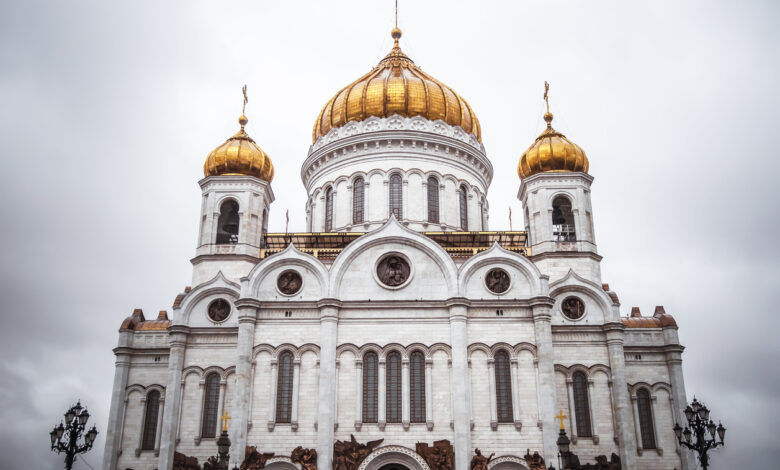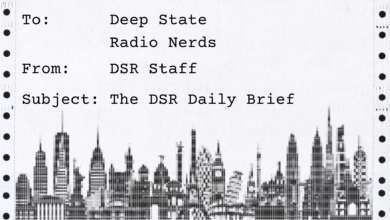Putin, Defiler of the Faith

After months of build up and attempts to find a pretext for invasion, on Wednesday night, Russian President Vladimir Putin began a war of choice against Ukraine. Just a few days prior, Russian President Vladimir Putin gave a speech to the Russian people laying out his reasons for war in Ukraine. It was mostly falsehoods, but one part that stood out was his mentions of Orthodox Christianity. Putin’s hand waving at the largest schism in Christianity since the Great Schism of 1054 shows how strong soft power can really be.
On Monday, Putin mentioned Orthdox Christianity twice. First, at the beginning of the speech where he claimed that Ukrainians were actually Russians. He also later argued that the Ukrainian Government was trying to shut down the Ukrainian Orthodox Church of the Moscow Patriarchate. To understand the importance of these invocations it is important to understand just how orthodox Russians and Ukrainians are. Pew Research Center found in 2019 that 78% of Ukrainians and 71% of Russians identify as Orthodox. To put this in perspective, these numbers are larger than the total percentage of Christians in the United States at 70% and more than triple the largest denomination of American Christians, Catholicism, at 20%. The Orthodox Church as an institution holds an incredible amount of power in Russia and Ukraine and until 2018, that Church was led by the Patriarch in Moscow.
However, that all changed in 2019, when the Orthodox Church of Ukraine was officially recognized and given self-governance. This took 36,000 parishes, almost a third of its total parishes, away from the sway of Moscow. The Patriarch of the Russian Orthodox Church did not accept this and cut off communion with any Orthodox Church that recognized the Orthodox Church of Ukraine. These actions were not merely the result of the machinations of religious leaders but also heavily involved their secular counterparts. Former President of Ukraine Petro Poroshenko directly lobbied the Patriarch of Constantinople prior to his decision to grant the Orthodox Church of Ukraine autonomy and “promote[d] a foreign policy linking church independence to national sovereignty.” For his part, President Putin argued that the schism could cause bloodshed. Unfortunately, he has proven himself correct.
Along with his attempt to reclaim the lands of a czarist empire, Putin is trying to take on the role of defender of the faith. Domestically, Putin pushes the policies focused on the “traditional family,” and has consistently derided the West saying that “many of the Euro-Atlantic countries are actually rejecting their roots, including the Christian values that constitute the basis of Western civilization.” This statement has won him a number of supporters in the far-right in the United States and across Europe. In 2016, the Duma passed legislation limiting evangelism in an attempt to limit other faiths from breaking the grip of the Russian Orthodox Church. This ethno-religious essentialism can be also seen in his policing of Chechnya and Muslim Russians. Outside his borders, he has repeatedly visited holy sites for the Orthodox Church and used religion as a justification for his foreign policy adventurism. Just last year, President Putin gave the highest state award to the head of the Russian Orthodox Church, Patriarch Kirill.
Unfortunately, the Russian Orthodox Church appears to be on board with Putin’s ambitions. In 2013, Putin received an award from Patriarch Kirill for his work at making Russia a great power. On Thursday Patriarch Kirill said, “The Russian and Ukrainian peoples have a common centuries-old history dating back to the Baptism of Russia by the holy Equal-to-the-Apostles Prince Vladimir. I believe that this God-given community will help overcome the divisions and contradictions that have arisen that have led to the current conflict.” Although this is not exactly providing full-throated support for the invasion, it does mirror Putin’s speech on Monday.
As we have seen in history, religion has been used as a justification for violence . The schism between the Orthodox Church of Ukraine and the Russian Orthodox Church is part of what is fueling Putin’s current crusade. Unfortunately, the self-reinforcing nature of the Church in Russia will continue to cause issues long after the current conflict dies down. It is vital that the West understands this and works to break the relationship between church and state in Russia if there is a chance for a free and peaceful future.

